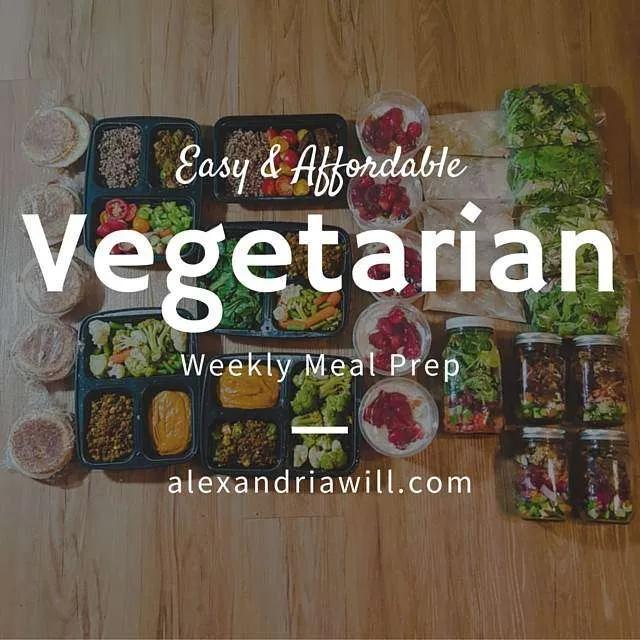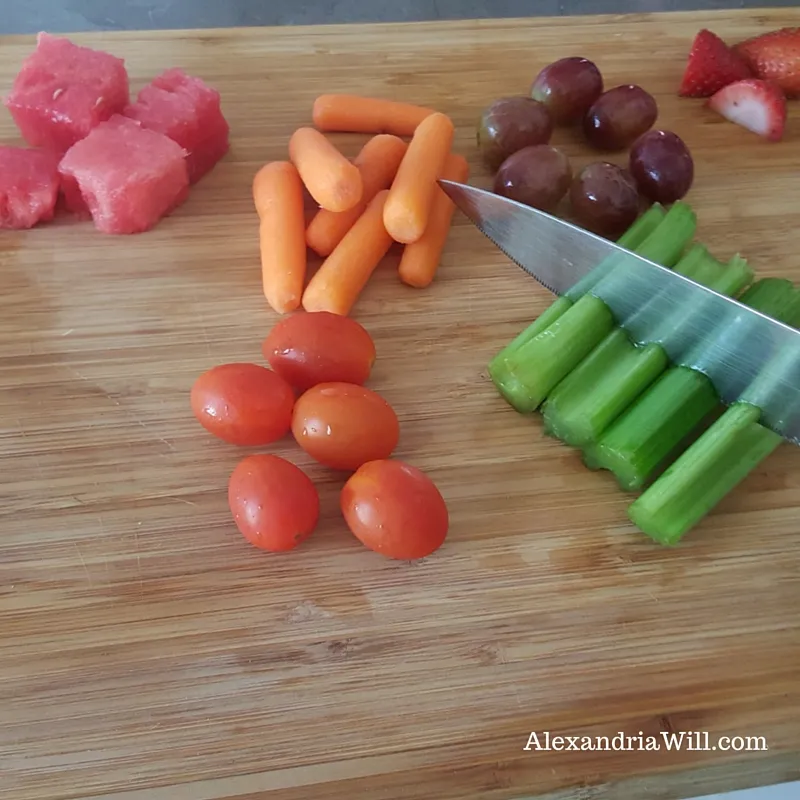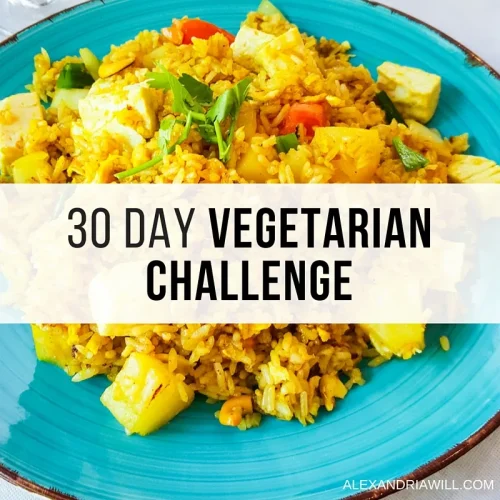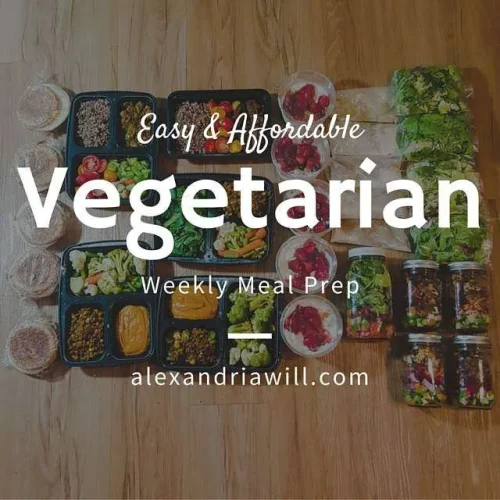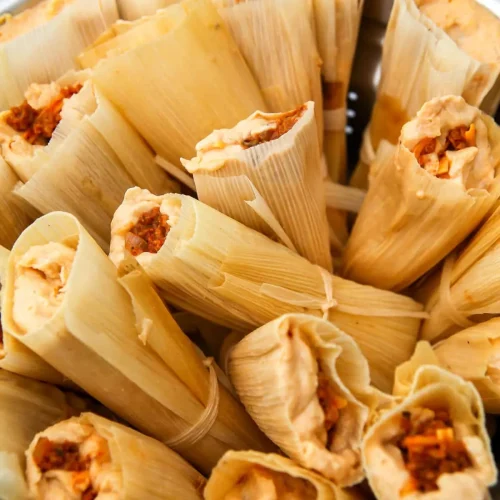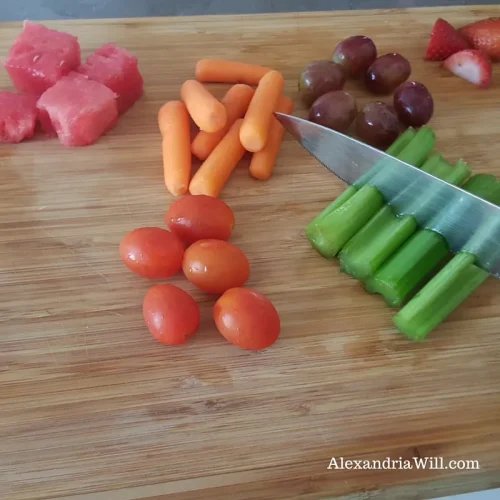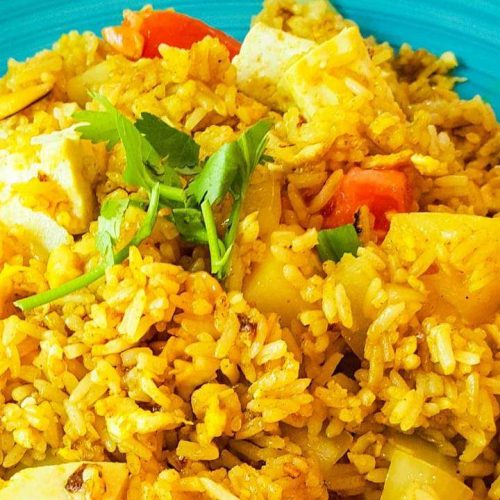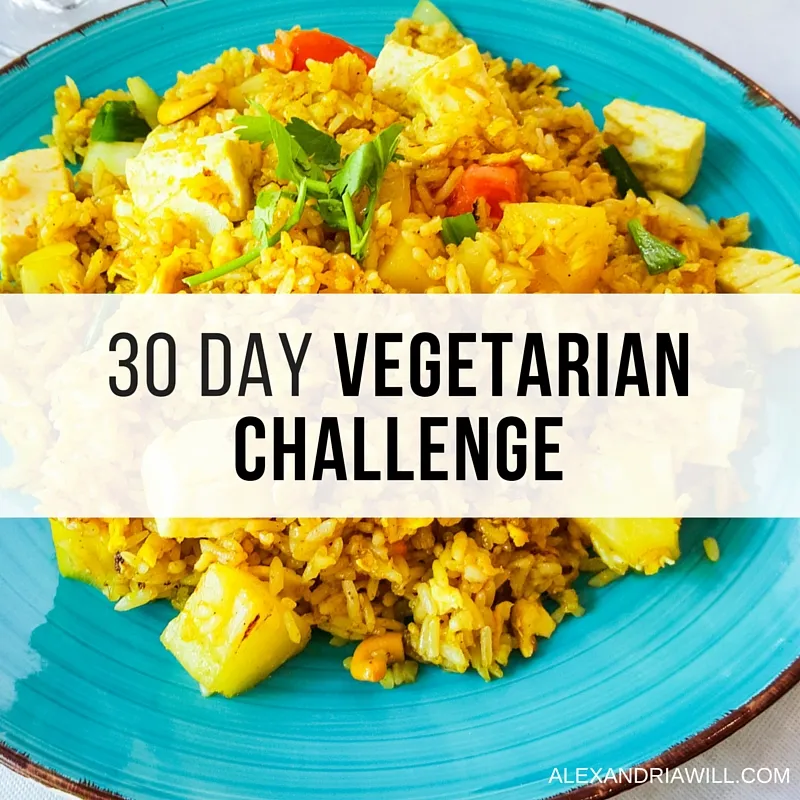
Food Guide For Vegetarian Challenge
I am doing a 30-day Vegetarian Challenge and wanting you to join me on this journey. Let’s start the year off by all striving to eat and live healthier. You can think of this as a fast or simply a great way to try vegetarianism with some new internet friends. 🙂 Are you ready to join? It’s really simple. Signup for my email list for updates as well as a few some surprises for those involved. Commit and go meatsless for 30 days Use the hashtag #justalex30 on Instagram or Twitter to keep in touch, share tips and obviously show off your great vegetarian meals! Got questions? Email me by and send over your questions. Signup for 30 the Day Challenge What is a vegetarian? A vegetarian is a person who does not eat meat or meat products. The Vegetarian Society defines a vegetarian as: “Someone who lives on a diet of grains, pulses, nuts, seeds, vegetables and fruits with, or without, the use of dairy products and eggs. A vegetarian does not eat any meat, poultry, game, fish, shellfish* or by-products of slaughter.” Meats include things such as chicken, fish, pork etc. As I was once told “if it has a mother, then don’t eat it.” A lot of vegetarians do eat animal by-products. These items are by-products of an animal but not the animal its self such as milk, cheese, eggs and honey. Foods Included in the 30 Vegetarian Challenge Get ready to try new foods and open your taste buds to Fruits: These can be fresh, frozen, dried, juiced or canned. Fruits include but are not limited to apples, apricots, bananas, blackberries, blueberries, boysenberries, cantaloupe, cherries, cranberries, figs, grapefruit, grapes, guava, honeydew melon, kiwi, lemons, limes, mangoes, nectarines, oranges, papayas, peaches, pears, pineapples, plums, prunes, raisins, raspberries, strawberries, tangelos, tangerines, watermelon Vegetables: These can be fresh, frozen, dried, juiced or canned. Vegetables include but are not limited to artichokes, asparagus, beets, broccoli, Brussels sprouts, cabbage, carrots, cauliflower, celery, chili peppers, collard greens, corn, cucumbers, eggplant, garlic, ginger root, kale, leeks, lettuce, mushrooms, mustard greens, okra, onions, parsley, potatoes, radishes, rutabagas, scallions, spinach, sprouts, squashes, sweet potatoes, tomatoes, turnips, watercress, yams, zucchini, veggie burgers are an option if you are not allergic to soy. Grains: These are a lot of choices to choose from but not limited to whole wheat, brown rice, millet, quinoa, oats, barley, grits, whole wheat pasta, whole wheat tortillas, rice cakes and popcorn. Nuts, Seeds & Legumes: including but not limited to sunflower seeds, cashews, peanuts, sesame. Don’t forget fresh nut butters including almond and peanut butter. Legumes include but are not limited to dried beans, pinto beans, split peas, lentils, black eyed peas, kidney beans, black beans, cannellini beans, white beans. Oils: Quality oils including but not limited to olive, canola, grape seed, peanut, and sesame. Beverages: spring water, distilled water, juices, smoothies, Lacroix and pure waters. Other: Eggs, Cheese, Tofu, temph, Beyond Meat, vinegar, seasonings, salt, herbs and spices. Limit to sugar conception but use natural sugar sources when needed such as raw coconut sugar, honey and molasses Foods to Avoid While going vegetarian try to make sure you avoid All meat and animal products including but not limited to beef, lamb, pork, poultry, and fish. All refined and processed food products including but not limited to artificial flavorings, food additives, chemicals, white flour, and foods that contain artificial preservatives. All deep fried foods including but not limited to potato chips, French fries, corn chips. All solid fats including shortening, margarine, lard, dressing and foods high in unsaturated and saturated fats Try to avoid having to many sodas, energy drinks, and high alcohol drinks. Remember, READ THE LABELS! 30 Day Vegetarian Challenge Tips Decrease meat intake up to 3 or more days before starting. Drink lots of water. Don’t forget to check out my series on water, ph and natural hair to have the proper water sources. Swap out your regular meats for meat substitutes like Beyond Meat and Trader Joe alternative meats Plan ahead weekly meals and snacks. Meal prepping might be your best friend. Load up on meal prepping containers and get to prepping! Invest in a variety of fresh herbs and seasoning as an alternative to salt and pepper. Always keep a piece of fruit, handful of protein such as string cheese or nuts and a protein powder in your pursue or at your work desk. Limit or avoid fried vegetarian and processed foods such as cookies, chips and french fries. Opt for more fresh foods or bake and broiled items. Experiment and check out my pinterest board full of crockpot ideas and recipes Don’t forget to address any medical needs with your doctor and take a daily. Sleep is important so don’t forget to have plenty of sleep. Educate your self. Before going vegetarian, I recommend checking out a few documentaries on the food industry, juicing and benefits of vegetarianism Vegetarians and Proteins Kale, lettuce, tomatoes, shrimp and nuts have one thing in common. They all contain protein. There is a misconception when it comes to vegetarians and it normally is “How do you get your protein if you don’t eat meat?” The answer, “You can’t be protein deficient unless you are calorie deficient.” The average amount of protein needed for men is close to 60g a day, while women need closer to 50g. You can find your daily calorie and protein needs by using this protein calculator. Below are a few options for protein sources for vegetarians. Quinoa: 15 g Tempeh: 24g Seitan: 24g Peas : 15-25g Eggs: 9g Nuts: 6-8g Plant Based Protein Shakes 10-30g Romaine lettuce 10g (two heads) Detoxing and Fasting Going meat-less for 30 days your body will be affected. Depending on your daily food intakes the change could be dramatic for some thus many of you might experience detoxing from food addictions, such as: caffeine, processed or unnatural foods, chemicals and sugar. It’s stated most symptoms that accompany detox process might be light or more pronounced such as headaches, fatigue or a small phase of depression. As the body will detox, the symptoms will alleviate and you will experience more energy, better sleep, clearer and sharper mind, and many









